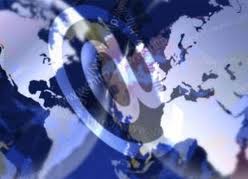
Washington, November 21: Just in case you did not know, India ranks 131st — between Burundi and Angola — in the 2012 press freedom index of Reporters without Borders. Freedom House puts India in the "party free" category in the 2012 Internet freedom rankings, below Argentina, South Africa, and Ukraine. So much for the world's largest democracy.
India's bragging rights about being one of the world's thriving civil societies with strong free speech statutes, already under a cloud, is facing searching questions following several episodes aimed at curbing freedom of expression. Two young women thrown in the clink for questioning the over-the-top response to Bal Thackeray's death is the latest incident to attract attention of free speech advocates, civil liberties activists, and the world media.
Both Thackeray's death and the aftermath, including massive crowds at the funeral and arrests of the young women received wide coverage in US by a media hard-pressed to understand the granular details of Mumbai's parochial and chauvinistic politics. "A demagogue freezes Mumbai for the last time," was the headline of a Bloomberg report while the Chicago Sun-Times described Thackerey as a "Hindu extremist leader linked to waves of mob violence against Muslims and migrant workers in India."
But the freedom of expression issue went beyond Thackeray's death and the Facebook episode that resulted in police bearing down on two young women who have been bullied into silence for questioning the enforced mourning. Free speech mavens recalled several incidents in recent times, including Congress party shenanigans to muzzle social media, to muse about the decline of civil liberties in India.
The RWB report, for instance, says there is an increasing trend in India of web monitoring and censorship by authorities. According to the Google Transparency website, which logs the Internet content removal requests that Google receives from governments, Indian officials have asked Google multiple times (67 to be exact, between July and December 2010) to remove 282 content items (namely videos critical of politicians) from YouTube and several blogs. Google allegedly complied with 22% of the requests, says RWB.
A Freedom House 2012 study of 47 countries on the subject of Internet freedom ranks India in the "partly free" category, a rank below fully free countries such as USA, Brazil, Argentina, South Africa and Australia. In its study of key internet controls, the report cites India for blocking Web 2.0, localized or nationwide ICT shutdown, passing new laws increasing censorship, and arrests of bloggers for political and social commentary.
"Ever since the 2008 Bombay attacks, the authorities have been intensifying their Internet surveillance and pressure on technical service providers while publicly denying censorship accusations. The national security policy of the world's largest democracy is undermining online freedom of expression and Internet users' privacy," the RWB report noted.
Some of the ranking makes little sense. In the RWB report on press freedom, for instance, Jamaica, Namibia, and Mali are ranked in the top 25, and Papua New Guinea, Ghana, and Botswana are in top 50; the US came in only 47th and India 131st, down from 122nd in 2010 and 105th in 2009.
So do the media in Mali and Papua New Guinea have greater freedom than in US and India? Not really. The RWB index is based on a complex questionnaire that asks about every kind of violation directly affecting journalists and netizens (including murders, imprisonment, physical attacks and threats) and news media (censorship, confiscation of newspaper issues, searches and harassment). It also measures the level of self-censorship in each country and the ability of the media to investigate and criticize. Financial pressure is also assessed and incorporated into the final score.
The questionnaire also takes account of the legal framework for the media (including penalties for press offences, the existence of a state monopoly for certain kinds of media and how the media are regulated) and the level of independence of the public media. It also reflects violations of the free flow of information on the Internet. The index, says RWB, should in no way be taken as an indication of the quality of the media in the countries concerned.
Still, the numbers do not look good for India. And the recent incidents don't augur well.





Comments
Add new comment